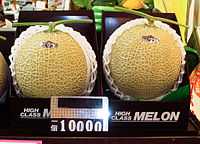Gift economy

The gift economy is an ancient phenomenon[1] and nothing new at all. This learning project will expand and build on what we already have going for us as a service community.
"In the social sciences, a gift economy (or gift culture) is a society where valuable goods and services are regularly given without any explicit agreement for immediate or future rewards (i.e. no formal quid pro quo exists).[2]"[3]
"Ideally, simultaneous or recurring giving serves to circulate and redistribute valuables within the community. The organization of a gift economy stands in contrast to a barter economy or a market economy. Informal custom governs exchanges, rather than an explicit exchange of goods or services for money or some other commodity.[4]"[3]
Gifts
Def.
- "something [transferred, presented, yielded, provided, carried out, donated] to another voluntarily, without charge"[5] or
- "something gained incidentally, without effort"[5]
is called a gift.
Economy
Def.
- effective "management of the resources of a community or system",[6]
- collective "focus of the study of money, currency and trade, and the efficient use of resources",[6]
- frugal "use or resources",[6]
- the "system of production and distribution and consumption",[6]
- the "overall measure of a currency system",[6] or
- the "method of divine government of the world"[6]
is called an economy.
Economics
"The picture is complicated by the fact that much of the valuation of art, whether aesthetic or economic or both, is socially conditioned, due importantly to the location of the arts as much in the gift economy as in the commercial market place."[7]
Planetary humanities
"Traditionally, the San were an egalitarian society.[8] Although they did have hereditary chiefs, the chiefs' authority was limited. The bushmen instead made decisions among themselves by consensus,[9] with women treated as relatively equal.[10] In addition, the San economy was a gift economy, based on giving each other gifts on a regular basis rather than on trading or purchasing goods and services.[11]"[12]
Commodities
While air is usually free to breathe, water often requires effort to obtain it.
In communities, wells are dug for everyone to have water. Streams are drained enough to provide water without ending the existence of the stream.
Industries
Someone who makes bows and arrows for hunting is an industry. When they give away some of these bows and arrows they are gifting. When they receive some food from a gatherer, they receive gifts.
Theoretical gift economy
When a hunter-gatherer brings extra food, clothing, or materials for shelter to others as gifts and upon occasion receives gifts from others so that all survive, this is a gift economy. An agriculturist that does the same contributes to a gift economy.
Entities
"Gifts between individuals or between groups help build a relationship, allowing the people to work together. The generosity of a gift improves a person's prestige and social standing. Differences in social rank are not defined by differences in access to goods, but rather by"[3] "his ability to give to others, the desire to accumulate being seen as an indication of weakness."[13]
Sources
"Language is a vehicle of regard, and conversation is a gift economy, loaded with cues of acceptance or disdain.19 The normal pleasantries, 'please', 'thank you', and 'good morning', are all statements of regard, their withholding hinting at rejection."[14]
Objects
"Bourdieu also carries this model of misrecognized exchanges still further, by showing that not only marriages, but also tribal feuds and vendettas are a kind of gift economy. Among the Kabyle, insults and murders must be avenged, in order to keep up a family's honor."[15] "Carrying out fights with proper enemies, then, brings honor to both sides, and constitutes another hidden gift exchange."[15]
"The content of the dominant schooling is the culture that corresponds to the interests of the dominant classes."[15]
Strong forces
Like air and water, food, clothing and shelter in many locations, are necessities. A free means to contribute may be a necessity.
Bonding
Giving or receiving gifts may create bonds of friendship. But, a gift economy does not have the requirement of reciprocation.
Hydrogen
"The near-zero marginal cost of copying information goods makes them nonrival goods, i.e., one can enjoy the good without diminishing other people's enjoyment of the same goods, just as taking a photograph of a beautiful scenery does not prevent others from taking their own photographs. It is a perfect situation for sharing, because one can copy and share the good without losing it, resurrecting what has been variouly called the gift economy or the economy of altruism."[16]
"Some may quibble that solar energy is also depletable because it will run out of hydrogen in a few billion years."[16]
"The hydrogen in the sun provides the Earth with abundant renewable solar energy that creates its own cascades of abundance. It is solar energy that drives all living systems, the water cycle, the global circulation of air. Properly tapped, it will provide humanity with inexhaustible sources of solar, wind, water and ocean energy that can make dirtier non-renewable sources like fossil and radioactive fuels unnecessary."[16]
Science
"Pure science is as close to a gift economy as we have, as Jeffrey Kovac has argued."[17]
Control group
A control group for testing an economy with respect to its benefits and sustainability may be a gift economy, if a standard successful gift economy exists.
Research
Hypothesis:
- A gift economy which balances profit-making with non-profit-making can be a functional free-market economy.
- More gift economies, or societies using a gift economy, are or have been south of the equator than north of the equator.
Control groups

The findings demonstrate a statistically systematic change from the status quo or the control group.
“In the design of experiments, treatments [or special properties or characteristics] are applied to [or observed in] experimental units in the treatment group(s).[18] In comparative experiments, members of the complementary group, the control group, receive either no treatment or a standard treatment.[19]"[20]
Proof of concept
Def. a “short and/or incomplete realization of a certain method or idea to demonstrate its feasibility"[21] is called a proof of concept.
Def. evidence that demonstrates that a concept is possible is called proof of concept.
The proof-of-concept structure consists of
- background,
- procedures,
- findings, and
- interpretation.[22]
See also
- Dominant group/Economics
- Econometrics
- Macroeconomics
- Microeconomics
- School:Economics
References
- ↑ Marshall Sahlins (1974). ISBN 0202010996. http://books.google.com/books?id=_qPSLy9564cC&lpg=PP1&pg=PP1#v=onepage&q=&f=false Stone Age Economics.
- ↑ David J Cheal (1988). "1". The Gift Economy. New York: Routledge. pp. 1–19. ISBN 0415006414. http://books.google.com/?id=o-wNAAAAQAAJ&pg=PP1. Retrieved 2009-06-18.
- 1 2 3 "Gift economy, In: Wikipedia". San Francisco, California: Wikimedia Foundation, Inc. August 10, 2012. Retrieved 2012-08-20.
- ↑ R. Kranton: Reciprocal exchange: a self-sustaining system, American Economic Review, V. 86 (1996), Issue 4 (September), p. 830-51
- 1 2 "gift, In: Wiktionary". San Francisco, California: Wikimedia Foundation, Inc. October 19, 2013. Retrieved 2013-11-03.
- 1 2 3 4 5 6 "economy, In: Wiktionary". San Francisco, California: Wikimedia Foundation, Inc. October 6, 2013. Retrieved 2013-11-03.
- ↑ David Throsby (August 2004). "Hans Abbing, Why Are Artists Poor? The Exceptional Economy of the Arts". Journal of Cultural Economics 28 (3): 239-41. doi:10.1023/B:JCEC.0000038056.05044.32. http://www.springerlink.com/content/q277hq633781wu81/. Retrieved 2012-01-25.
- ↑ Marjorie Shostak (1983). Nisa: The Life and Words of a ǃKung Woman. New York: Vintage Books. p. 10.
- ↑ "The !Kung Bushmen".
- ↑ Shostak 1983: 13
- ↑ Shostak 1983: 9, 25
- ↑ "Bushmen, In: Wikipedia". San Francisco, California: Wikimedia Foundation, Inc. August 15, 2012. Retrieved 2012-08-20.
- ↑ Duran Bell (Summer 1991). "Modes of exchange: Gift and commodity". Journal of Socio-Economics 20 (2): 155-67. doi:10.1016/S1053-5357(05)80003-4. ISSN 1053-5357. http://www.sciencedirect.com/science/article/pii/S1053535705800034.
- ↑ Avner Offer (August 1997). "Between the gift and the market: the economy of regard". The Economic History Review 50 (3): 450-76. doi:10.1111/1468-0289.00064. http://economics.ouls.ox.ac.uk/10489/1/gift3.pdf. Retrieved 2012-01-25.
- 1 2 3 Randall Collins and Michael Makowsky (1993). Pierre Bourdieu: Symbolic Violence and Cultural Capital, In: The Discovery of Society, Seventh Edition. Boston: McGraw Hill. pp. 244-50. ISBN 0-07-250736-5. http://digilib.bc.edu/reserves/sc001/milm/sc00108.pdf. Retrieved 2012-03-27.
- 1 2 3 Roberto Verzola (October 2009). "21st-Century Political Economies: Beyond Information Abundance". Ethics of Waste in the Information Society 11 (10): 52-61. http://scidok.sulb.uni-saarland.de/volltexte/2009/2536/pdf/irie_11.pdf#page=54. Retrieved 2014-07-20.
- ↑ Roald Hoffmann (January-February 2003). "Marginalia: Why Buy That Theory?". American Scientist 91 (1): 9-11. http://www.jstor.org/stable/27858146. Retrieved 2014-07-20.
- ↑ Klaus Hinkelmann, Oscar Kempthorne (2008). Design and Analysis of Experiments, Volume I: Introduction to Experimental Design (2nd ed.). Wiley. ISBN 978-0-471-72756-9. http://books.google.com/?id=T3wWj2kVYZgC&printsec=frontcover.
- ↑ R. A. Bailey (2008). Design of comparative experiments. Cambridge University Press. ISBN 978-0-521-68357-9. http://www.cambridge.org/uk/catalogue/catalogue.asp?isbn=9780521683579.
- ↑ "Treatment and control groups, In: Wikipedia". San Francisco, California: Wikimedia Foundation, Inc. May 18, 2012. Retrieved 2012-05-31.
- ↑ "proof of concept, In: Wiktionary". San Francisco, California: Wikimedia Foundation, Inc. November 10, 2012. Retrieved 2013-01-13.
- ↑ Ginger Lehrman and Ian B Hogue, Sarah Palmer, Cheryl Jennings, Celsa A Spina, Ann Wiegand, Alan L Landay, Robert W Coombs, Douglas D Richman, John W Mellors, John M Coffin, Ronald J Bosch, David M Margolis (August 13, 2005). "Depletion of latent HIV-1 infection in vivo: a proof-of-concept study". Lancet 366 (9485): 549-55. doi:10.1016/S0140-6736(05)67098-5. http://www.ncbi.nlm.nih.gov/pmc/articles/PMC1894952/. Retrieved 2012-05-09.
Further reading
- Lewis Hyde (1983). The Gift: Imagination and the Erotic Life of Property. ISBN 0-394-71519-5. Especially part I, "A Theory of Gifts", part of which was originally published as "The Gift Must Always Move" in Co-Evolution Quarterly No. 35, Fall 1982.
- Peter Kropotkin (1902; this edition 1987, 1993, 1998). Mutual Aid: A Factor of Evolution. Freedom Press. ISBN 0-900384-36-0.
- Marcel Mauss (1925). The Gift: The Form and Reason for Exchange in Archaic Societies. ISBN 0-393-32043-X. Originally published as Essai sur le don. Forme et raison de l'échange dans les sociétés archaïques. Lewis Hyde calls this "the classic work on gift exchange".
- Gifford Pinchot III (Summer, 1995). The Gift Economy. Context Institute. pp. 49. http://www.dailygood.org/more.php?n=3775a.
- Marshall Sahlins (1972). Stone Age Economics. Chicago: Aldine Transaction. ISBN 9780202010991.
External links
- African Journals Online
- Bing Advanced search
- Google Books
- Google scholar Advanced Scholar Search
- International Astronomical Union
- JSTOR
- Lycos search
- NASA's National Space Science Data Center
- NCBI All Databases Search
- Office of Scientific & Technical Information
- PsycNET
- Questia - The Online Library of Books and Journals
- SAGE journals online
- The SAO/NASA Astrophysics Data System
- Scirus for scientific information only advanced search
- SIMBAD Astronomical Database
- SIMBAD Web interface, Harvard alternate
- Spacecraft Query at NASA.
- SpringerLink
- Taylor & Francis Online
- WikiDoc The Living Textbook of Medicine
- Wiley Online Library Advanced Search
- Yahoo Advanced Web Search
| |||||||||||||||||||||||||||||||||||||||||||||||||||||
| ||||||||||||||||||||||||||||||||||||||||||||||||||||||||||||||
| |||||||||||||||||||||||||||||||||||||||||||||||||||||
| |||||||||||||||||||||||||||||||||||||||||
| ||||||||||||||||||||||||||||||||||||||||||||
| |
Development status: this resource is experimental in nature. |
| |
Educational level: this is a research resource. |
| |
Resource type: this resource is an article. |
| |
Resource type: this resource contains a lecture or lecture notes. |
| |
Subject classification: this is an economics resource. |
| |
Subject classification: this is a humanities resource. |
| |
Subject classification: this is a medicine resource. |
| |
Subject classification: this is a psychology resource . |
| |
Subject classification: this is a Sociology resource. |